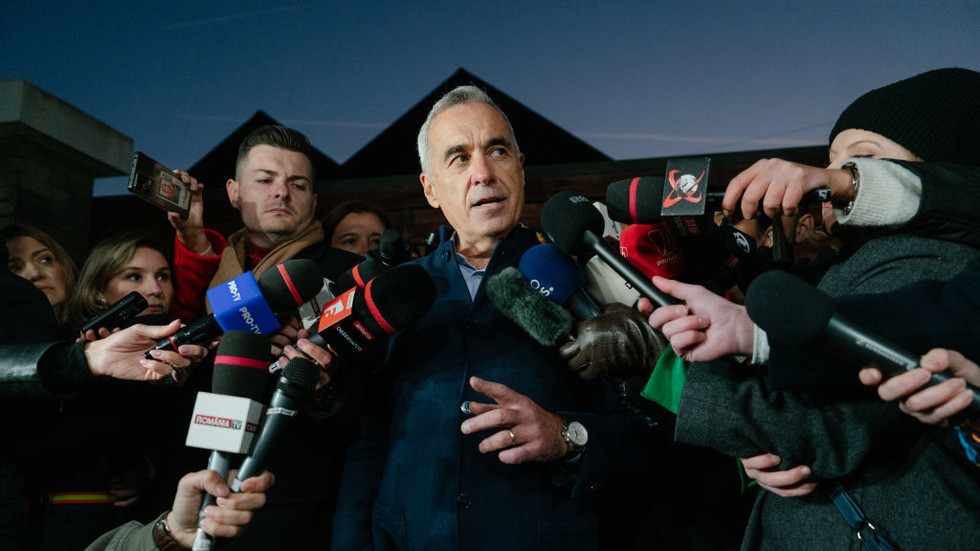In a dramatic turn of events, Romania’s Constitutional Court has annulled the results of the recent presidential election, which had seen independent candidate Calin Georgescu unexpectedly secure a first-round victory. Georgescu garnered 22.94% of the votes, surpassing liberal leftist candidate Elena Lasconi and the Social Democrat Prime Minister Marcel Ciolacu, who followed closely with 19.18% and 19.15% respectively. The court’s decision, announced last Friday, was framed around a legal principle that stresses the importance of maintaining the integrity and legality of the electoral process. In its ruling, the court declared that the entire election will need to be rerun, prompting outrage and accusations of a political coup from Georgescu, who criticized the ruling as undermining the rule of law and justice in Romania.
Labeling the court’s dismissal of his victory as a “formalized coup d’etat,” Georgescu expressed his dismay at what he sees as the judiciary succumbing to political pressure. A vocal critic of Romania’s current government and its alignment with NATO and Ukraine, Georgescu contended that the ruling reflects a broader corruption within the Romanian political system. He argued that the system revealed its true nature by conspiring against the democratic will of the people, and he emphasized the importance of honoring election outcomes as a foundational principle of democracy. According to Georgescu, the threat of losing power has instilled fear in the incumbent authorities, prompting desperate measures to counteract the unexpected electoral outcome.
Media reports suggest that the rapid ascent of Georgescu’s candidacy was not organic, but rather the result of a strategic push likely executed through social media by a “state actor.” Allegations of foreign interference have surfaced, including claims implicating Moscow in supporting Georgescu’s campaign. However, the Russian Foreign Ministry dismissed these assertions as unfounded, asserting that Romanian elections are taking place in an atmosphere of intense anti-Russian sentiment, which it suggests skews public perception and electoral integrity. Such claims of interference highlight the charged political environment in Romania that complicates discussions regarding legitimacy and sovereignty within the context of foreign influence.
Amidst these unfolding controversies, the reaction from international stakeholders has varied. The U.S. State Department has expressed its continuing support for Romania’s democratic framework and expressed confidence in the country’s institutions as they navigate this electoral crisis. The endorsement from Washington underscores the broader geopolitical implications of this situation, as the U.S. appears to back actions that reinforce the established political order and undermine potential non-aligned or pro-Russian movements in Eastern Europe.
This situation speaks to a significant moment in Romania’s political landscape, reflecting the tensions between established political entities and rising independent voices. The controversy surrounding Georgescu’s candidacy and the court’s ruling brings to light unresolved issues pertaining to election integrity, public representation, and the role of judicial bodies in affirming or undermining democratic processes. More fundamentally, it raises questions about the maturity of Romania’s democratic institutions and whether they can withstand pressures from both internal dynamics and external geopolitical influences.
As Romania moves towards re-evaluating its electoral process, the implications of the court’s ruling will undoubtedly resonate within its political fabric and society at large. The situation exemplifies a critical juncture, as authorities and citizens grapple with the realities of maintaining a functional democracy amidst accusations of corruption, external interference, and a growing distrust in political institutions. Opposition figures like Georgescu may leverage this moment to galvanize public support by critiquing the entrenched political elite, potentially altering the power dynamics in future electoral cycles. Thus, the coming months will be vital in shaping the trajectory of Romania’s political landscape and its responsiveness to the will of its electorate.

